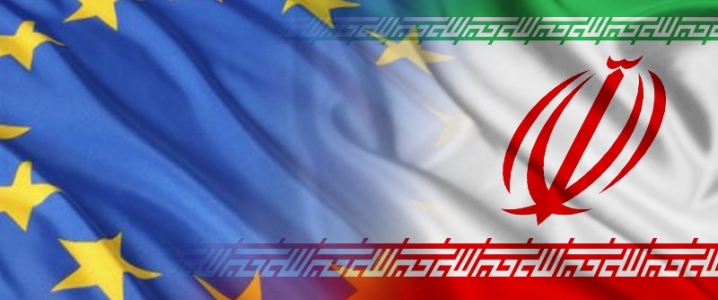www.aljazeerah.info
Opinion Editorials, November 2018
Archives
Mission & Name
Conflict Terminology
Editorials
Gaza Holocaust
Gulf War
Isdood
Islam
News
News Photos
Opinion Editorials
US Foreign Policy (Dr. El-Najjar's Articles)
www.aljazeerah.info
Why The EU Can't Save Iran from US Sanctions By Cyril Widdershoven Al-Jazeerah, CCUN, November 18, 2018 |
 |
 |
|
The full impact of U.S. sanctions on Iran is still to be assessed, as major underlying factors remain opaque.
OPECís current fear of an oil glut in 2019, as indicated by investment banks, IEA, EIA and others, might not materialize. Market fundamentals are still strong, especially taking into account that U.S. refineries are ramping up production after maintenance season, while Iranian floating oil will end soon as sanctions are about to hit. Still, one of Iranís major lifelines could be the current EU approach, which is largely trying to mitigate the effects of U.S. sanctions on European companies and financial operators. The rosy future painted by EU officials however shows severe cracks, while reality on the ground is extremely bleak. European efforts to protect trade with Iran, as an answer to mitigate U.S. sanctions, are hitting a brick wall. European politicians seem to be out of touch with reality not only in the markets, but also concerning the attitude of several of its member countries. European politicians, mostly working from their shiny offices in Brussels and Strassbourg, seem to be living in an ivory tower, as no real practical support for all their measures has been shown in the respective member states.
The last factor showing the weakness of the EU Iran approach is the fact that no single European country is willing to host a so-called Special Purpose Vehicle (SPV) as they fear the wrath of the U.S. Washingtonís influence in real politics and markets is still much larger on a global and even bilateral stage than Brussels wants to admit. Leading European powers Ė Great Britain, Germany and France Ė are currently putting pressure on minor league EU member Luxembourg to host the SPV. The latter however is already doomed, as not only is the influence of London on Luxembourg minimal, but the small EU member can hide behind the refusal of Austria to host the SPV too. Brussels is showing a brave face, but itís likely that Eastern European and Balkan member countries will reject the SPV plans, while Italy and Spain are still in limbo. Statements made by EU Justice Commissioner Vera Jourova that the EU cannot accept that a foreign power takes decisions over our legitimate trade with another country, seem to be very hollow and empty.
The SPV at present is seen as the lynchpin in the EU moves to save not only their trade with Iran but also the overall JCPOA agreement. At present, Brussels and its main supporters, Paris and Berlin, are trying to keep the JCPOA agreement in place, risking a direct confrontation not only with the U.S. but with most of the Arab world. The SPV has been set up as a kind of clearing house that could be used to help match Iranian oil and gas exports against purchases of EU goods in an effective barter arrangement circumventing U.S. sanctions. The main issue European companies are facing with Iran are currently based on the position of the US dollar in international trade.
Even with full EU support, the SPV, according to most analysts, will not shield EU companies and banks from US sanctions. These will be hefty, for sure much more than the current Iran-EU trade volumes could counter.
A possible failure of the EU SPV proposal would for sure heat up the market very soon. Iranís main lifeline at present is very weak, Asian markets continue to buy Iranian crude and products, but seem to be heading to zero crude imports when the current U.S. waivers will end. At the same time, the effects of the decision by international financial system SWIFT not to allow any-more deals with Iran already has significantly slowed down trade with Europe.
For Iran, the future is looking dark. A European failure would be seen a betrayal, and possibly the end of the JCPOA agreement. An Iranian reaction to this should be expected, as such a failure would strengthen the hardliners in Tehran.
For global oil markets, taking the position of the devilís advocate, this could be bullish. More clarity on Iranian volumes and possibilities of circumventing the U.S. sanctions, is necessary to assess the perceived oil glut scenarios. OPECís leaders will already be taking this into account to set up a production cut agreement early December in Vienna. Iranís situation will be clearer by that date, leaving Saudi Arabia, Russia, UAE and others, more space to pro-actively counter a real oil glut in 2019. Fundamentals are at present diffuse, but once Europeís position is clear, one large destabilizing factor is removed with a bang.
The fact that already some major Iranian oil importers in Asia have been very compliant to U.S. threats, such as South Korea, should be a sign that even without a multilateral sanctions approach, Washington is still able to wreak havoc on Iran. Oilprice.com reported this week that no Iranian oil has been imported in South Korea for a second straight month due to the re-imposition of US sanctions. For the first 10 months of 2018, South Koreaís Iran crude imports halved in real terms. South Korea is also having a waiver from the U.S. in place, but reality seems to be different.
https://oilprice.com/Geopolitics/International/Why-The-EU-Cant-Save-Iran.html
***
Share the link of this article with your facebook friends
|
|
|
|
||
|
||||||


